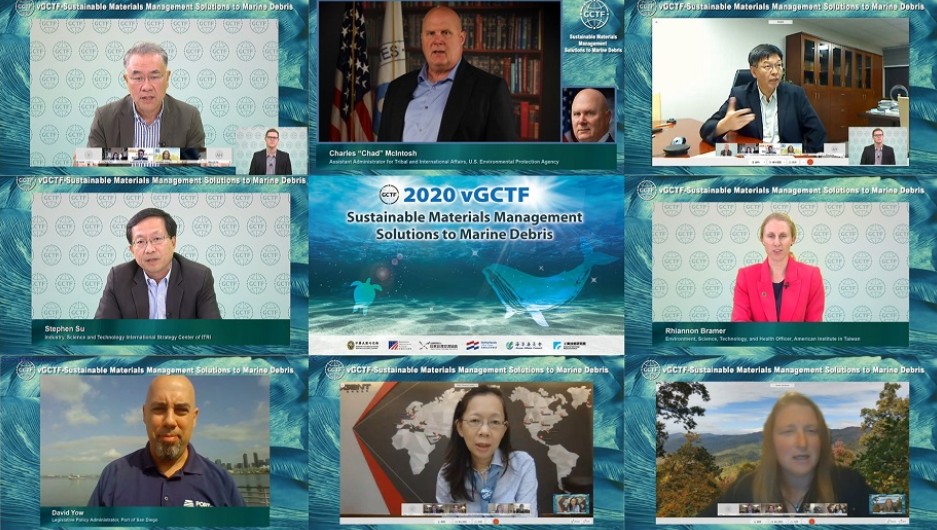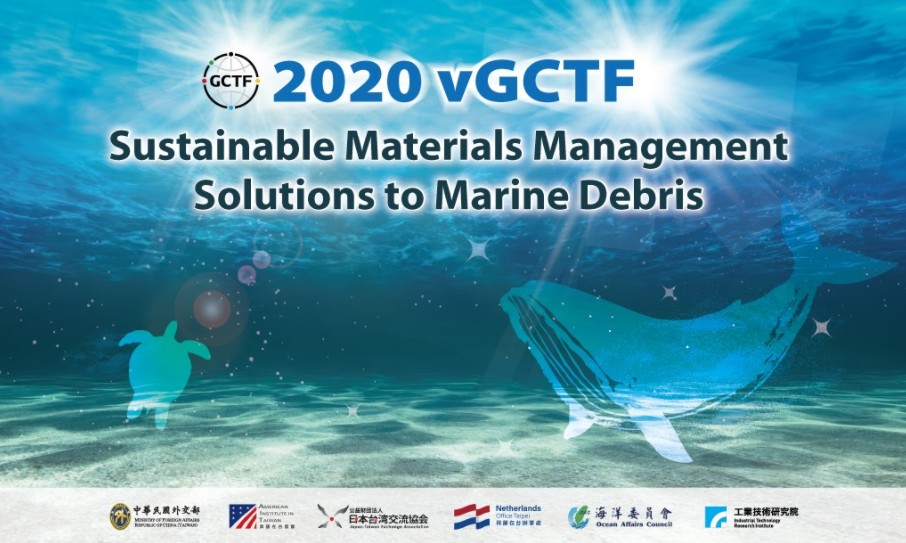Circular Taiwan Network(CTN), the leading organization champions circular economy in Taiwan, was invited to give a keynote speech at the GCTF online event titled “Circular Economy Solutions to Marine Debris” in November 2020. Global Cooperation and Training Framework (GCTF) is a collaborative platform administered by Taiwan, The United States and the Japan-Taiwan Exchange Association to deliver the purpose for Taiwan to share its expertise with partners around the world.
The challenge of marine debris is transboundary and exacerbating. There are over 150 million metric tons of plastics in the ocean today, affecting water quality and biological habitats, as well as creating risks to human health through the food chain. While most of the world’s effort has been focused on cleaning up the marine debris, which would improve the oceanic environment, it is actually labor and capital intensive, and cannot prevent future marine debris from ending up in the ocean. As the United Nations Industrial Development Organisation indicates, the problem of marine plastic litter can best be addressed through implementing circular economy practices.
Mr. Charles Huang, the founder of CTN, took the opportunity to emphasize how to leverage the circular economy to create systemic change through business model and product redesign. In order to establish a well understanding of the marine debris challenge and its progress in Taiwan, CTN published a booklet titled “Circular Economy - A Model to Transform Marine Debris to Resources” addressing the issue through a circular economy perspective. The booklet serves as the official reference material for all participants of the event.
Through the event, Mr. Huang shared his insights of the unique position Taiwan stands on the issue of marine debris. Taiwan has solid recycling and management capabilities in many product systems. Combined with a relatively complete supply chain, Taiwan can create a closed-loop product system that prevents marine debris. Take plastics as an example, Taiwan has the whole supply chain covering from upstream raw materials to midstream and downstream processing. Taiwan also has other industries such as plastic machinery (including plastic molds) and remanufacturing on the side. With a circular business model as the core concept, Taiwan will be able to provide a turnkey solution combining product manufacturing, take back service and recycling management.
The virtual GCTF event attracted over a hundred of participants from 22 countries and has gathered thousands of video views.

